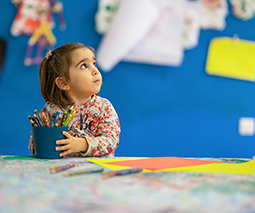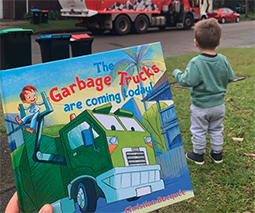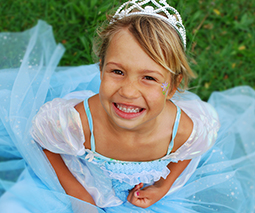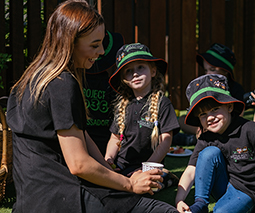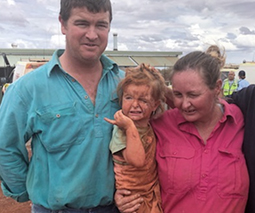Learning to read early helps empower kids – so why are some kids missing out?
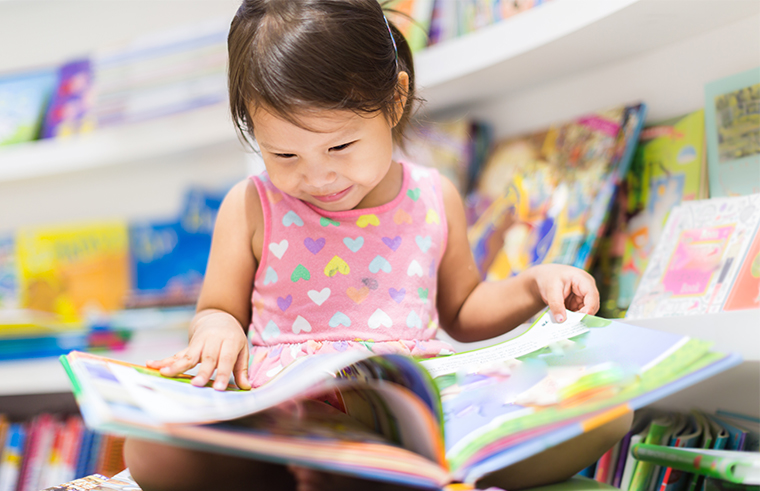
It’s no secret that reading is a crucial skill for young children. It has a profound impact on their lives academically, socially and emotionally.
And with children growing up in the age of iPads and smartphones, it’s more important than ever to develop strong literacy skills early on in life. Being literate in the twenty-first century involves more than just being able to read printed text. Children need to learn how to interpret and connect with non-printed text, to be discerning about what they read, and to utilise digital literacy skills.
Early access to books gives children an advantage
Study after study shows that children who are read to often at an early age enter school with larger vocabularies and stronger comprehension skills. But many Australian children are still falling behind at alarming rates.
With limited access to books and resources at home young children from disadvantaged backgrounds miss out on the same shared reading time that their more advantaged peers enjoy, and the effects are devastating.
According to The Smith Foundation, children from disadvantaged backgrounds are already well behind their peers by age four. By age six, many are around seven times more likely than other children to be doing badly at school.
The reading gap in Australian primary schools between the lowest socio-economic students and the highest is equivalent to almost three years of schooling.
How we can give kids a literacy leg-up
Providing early learning resources and reading support at home is vital for a child’s future potential. The good news is that preschool-aged children have an incredible capacity to learn new things. In fact, about 75 percent of their brain development happens in these early years, making it an optimum time to harness their natural curiosity.
ABC Reading Eggs’ inaugural Read, Learn, Empower event is a wonderful way we can all help close the gap. For every parent or carer who signs up for a 30 day free trial before 30 September, ABC Reading Eggs will donate $1 to The Smith Family. Funds raised will support The Smith Family’s education programs, like Learning For Life, which helps more than 56,000 young Australians from disadvantaged backgrounds succeed at school and to create better futures for themselves.
Families and schools who already use ABC Reading Eggs can also take part by uploading a video of their children or class using the program and simply tag @readingeggs and #readlearnempower. For every video uploaded, ABC Reading Eggs will donate a 12-month online subscription to The Smith Family.
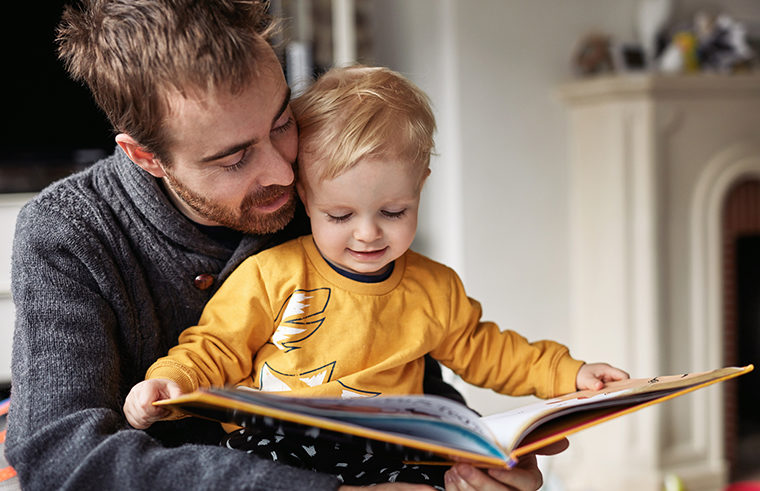
10 fun activities that introduce early literacy skills
There’s no denying that one of the most important things parents can do with their children at home is to read books aloud. But there are also other ways to lay the foundations for essential early literacy skills. Here are some playful and hands-on ways to give all children a strong start in reading:
1. Sing songs, make up fun rhymes and play with words
These are wonderful for building phonemic awareness – the ability to hear individual sounds in words. It’s how we know that the word ‘cat’ is made from three individual sounds: c…a…t. It’s also how we know that ‘cat’ sounds like ‘bat’ but starts with a different sound.
2. Play matching games
Games like ‘Snap!’, where children quickly match two images that are the same, are great for building recognition skills. Children need visual skills in order to recognise letters and words.
3. Play sorting games
Cut pictures from magazines and get your child to sort them into groups, for example, group animals together, or fruit, or people wearing blue. This type of activity builds visual discrimination skills.
4. Play ‘spot the difference’
Get your child to look closely at two pictures and identify the differences between them. This is a great way to help them recognise details in visual images. Later on, it will help them to determine one letter from another.
5. Play sequencing games
Talk about the order in which things happen and play with sequencing things, such as the steps involved in making a sandwich or brushing their teeth. Strong sequencing skills help children to develop better reading comprehension. Sequencing also helps children understand how texts are put together, which is useful for their own story writing down the track.
6. Look for letters when you’re out and about
Look at street signs, in shops or on number plates. Say the letter’s name and say its sound. Find the letter that starts your child’s name and say its initial sound, “Letter s makes the ssssssss sound like a snake.” This is a great pre-phonics activity.
7. Make playdough letters
Getting your child to say the letter’s sound while making its shape is a great multi-sensory activity. Rolling and shaping playdough also strengthens hand muscles for writing.
8. Tripod challenge
Challenge your child to pick up little beads or dried pasta shapes with just their thumb, index and middle fingers. This is a great way to build the tripod grip for holding a pencil properly. A good pencil grip can really help with handwriting and letter formation in school.
9. Create a writing station
Give your child access to plenty of paper, pencils, crayons and other writing tools so that they can freely experiment. Many pre-schoolers like to write random letter strings. A good thing to remember is if you’re showing them how to write letters, avoid the temptation to only write in capital letters. Lowercase letters are used more often in most texts.
10. Read, read, read
Reading a variety of books builds listening skills and talking about new words builds vocabulary. Re-tell favourite stories and make up silly stories. Most importantly, have fun and don’t try to force it.
This post was written, by Sara Leman, literacy expert, ABC Reading Eggs.
Want to support The Smith Family through the Read, Learn, Empower? Just sign up to ABC Reading Eggs for a 30 day free trial before 30 September.
